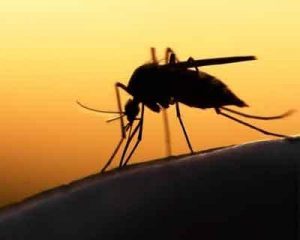- Home
- Editorial
- News
- Practice Guidelines
- Anesthesiology Guidelines
- Cancer Guidelines
- Cardiac Sciences Guidelines
- Critical Care Guidelines
- Dentistry Guidelines
- Dermatology Guidelines
- Diabetes and Endo Guidelines
- Diagnostics Guidelines
- ENT Guidelines
- Featured Practice Guidelines
- Gastroenterology Guidelines
- Geriatrics Guidelines
- Medicine Guidelines
- Nephrology Guidelines
- Neurosciences Guidelines
- Obs and Gynae Guidelines
- Ophthalmology Guidelines
- Orthopaedics Guidelines
- Paediatrics Guidelines
- Psychiatry Guidelines
- Pulmonology Guidelines
- Radiology Guidelines
- Surgery Guidelines
- Urology Guidelines
Use Ivermectin for malaria control and elimination : Lancet

Dr. Menno Smit from the Liverpool School of Tropical Medicine (LSTM) & team, from Kenya Medical Research Institute (KEMRI), the U.S. Centers for Disease Control and Prevention (CDC) carried out a randomized controlled trial in western Kenya to study potential impact of a completely new type of antimalarial drug that kills mosquitoes, as opposed to existing drugs that target the parasite on malaria.They found that adding high doses of ivermectin, an endectocide class of drug, to the antimalarial dihydroartemisinin-piperaquine (DP) had a major and prolonged effect on mosquito mortality.The results of the study have been published in The Lancet Infectious Diseases.
Ivermectin is an antiparasitic drug and in lower doses is widely used in the treatment of other tropical diseases but even doses up to 10 times the standard dose have been found safe. The researchers evaluated doses that were predicted to give drug levels that were 2 times and 4 times higher than the standard dose. They combined it with the malaria drug DP which is routinely used in mass drug administration in many malaria-endemic countries. They found that three-day courses of ivermectin 300 and 600 mcg/kg/day were safe and routinely killed mosquitoes feeding on the blood of the treated individuals for at least 28 days post-treatment. These results suggest that ivermectin has the potential to become a novel tool for malaria control and elimination.
Dr. Menno Smit said: "This is an entirely novel type of intervention which could be added to community-wide campaigns with antimalarial drugs, such as mass drug administration and seasonal malaria chemoprevention, to kill both mosquitoes and parasites. We worked with colleagues from Imperial College London, who used our results in a mathematical model, which predicts that the addition of high dose ivermectin increases the impact on malaria reduction by potentially as much as 61%."
"This first evaluation of the impact of high dose ivermectin on mosquito mortality is highly encouraging and requires further evaluation in larger scale trials that target both malaria parasites and the mosquitos, as the world pushes towards malaria elimination", explained LSTM's Professor Feiko ter Kuile, senior author of the paper. "The drug's impact on mosquito mortality, long effect-duration, and tolerability make it a promising new tool in malaria control. It has a different mode of action from other insecticides, meaning that it could also be effective against mosquitos that rest and feed outdoors, as well as mosquitoes that are resistant to the standard insecticides used on bed nets and indoor spraying."
Preliminary results of the study were presented at a World Health Organization (WHO) evidence review group meeting, while UNITAID has issued a call for further research into the use of endectocide class drugs, of which ivermectin is currently the only one registered for human use, as new vector control tools in the fight against malaria and other mosquito-borne diseases.

Disclaimer: This site is primarily intended for healthcare professionals. Any content/information on this website does not replace the advice of medical and/or health professionals and should not be construed as medical/diagnostic advice/endorsement or prescription. Use of this site is subject to our terms of use, privacy policy, advertisement policy. © 2020 Minerva Medical Treatment Pvt Ltd